Hey everyone! here I am with another update. Last time I had concluded-“PCI class is not discoverable to device manager”, it was actally a bit wrong.
So korli explained that device manager won’t load a driver which system
doesn’t know so in order for device manager to consider sdhci bus device, it has to
be added under a condition of the devices of same type. So we added it under
“disk”. With that he also committed PoC which came out to be very useful but
still I took sometime to really understand it.
Hey everyone,
I was not able to put in complete effort into GSoC, as I was having exams in my University during the past few weeks. I’ll be regular with the updates starting with this one.
I was encountering issues related to header files and xfs_shell wasn’t bulding properly. It was the problem in JamFile that FS_SHELL wasn’t added as an additional define. Doing so made sure that fs-shell wrappers are properly loaded.
Sorry folks! for the delay in the updates. I was pretty much occupied by end term exams. After initial setup, we divided the our initial plan in following steps.
- Discover PCI bus
- Filter out SDHC device from the connected devices on the bus.
- Register the device as the child node.
As I was able to load the driver, it exited in between somewhere from the supports_device(). So I broke the conditions where it checks for the bus, device ID and vendor ID, in order to see where exactly it was not satisfying the condition. I also printed bus value, we got to know that the driver was not able to access PCI bus and it’s hidden by default. To enable it we need to mention the bus manager(“mmc”:location://src/add-ons/kernel/busses/mmc) path in the device manager(location://src/system/kernel/device_manager/device_manager.cpp) where few more busses’s paths were hardcoded.
This is the fourth progress report for TrackGit project. I did the following in last week.
Status Command
I implemented the status command. This will pop up a window showing status of the current repository. This menu item will be shown only when the current directory is in some repo path.
The following screenshot shows the Status Window:
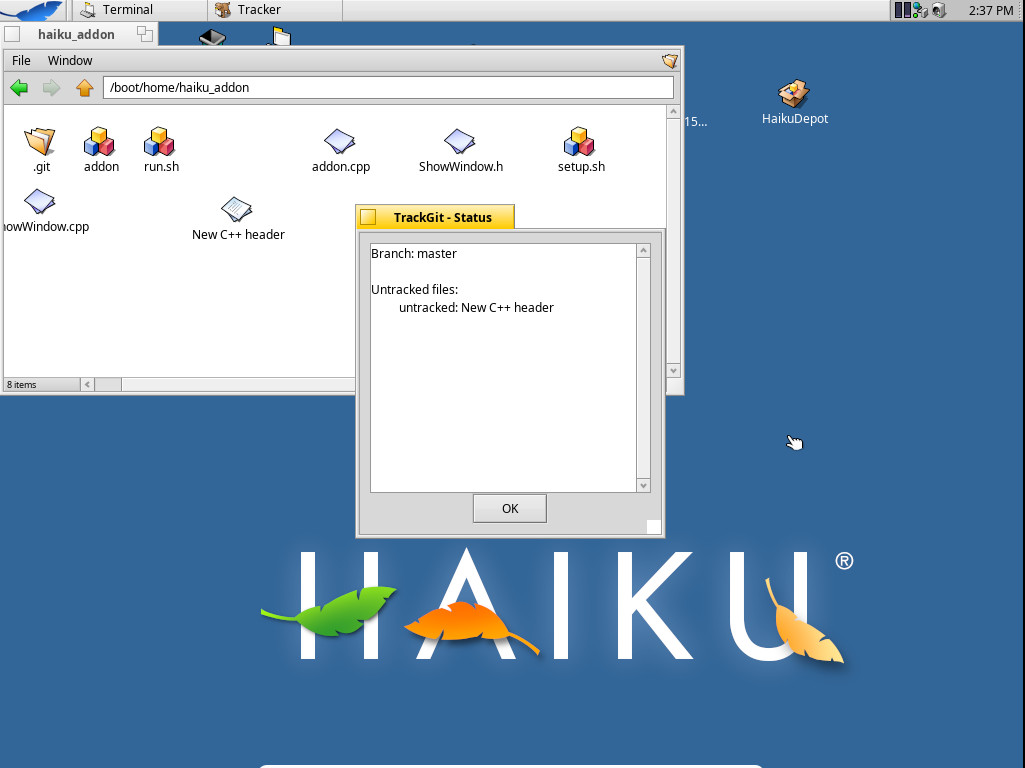
Solved a bug in Status
While implementing Status commmand, I ran into a bug which took some of my time. But I was able to solve it with the help of Haiku Debugger.
This is the third progress report for TrackGit project. I did the following in last week.
Clone Window.
I implemented Clone window. It looks something like following:
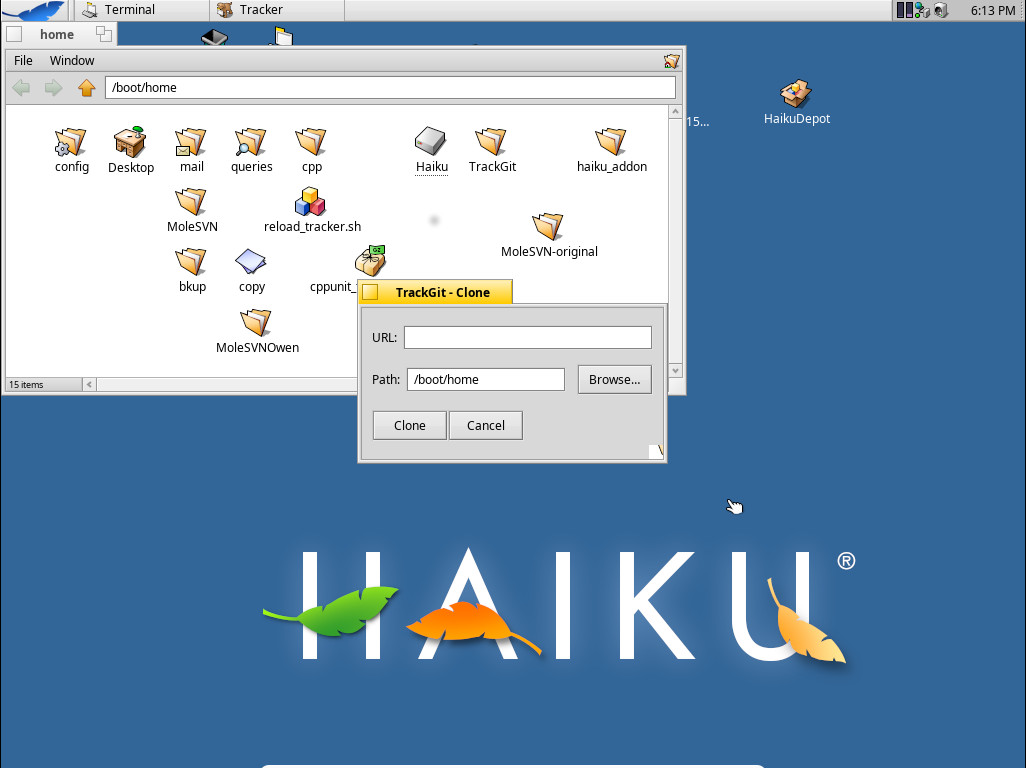
Clone Command
I implemented Clone command. Unfortunately, I’m blocked with some ssl object error.
Init
Implemented Init of empty repository. Following are steps to Init a git repo through TrackGit:
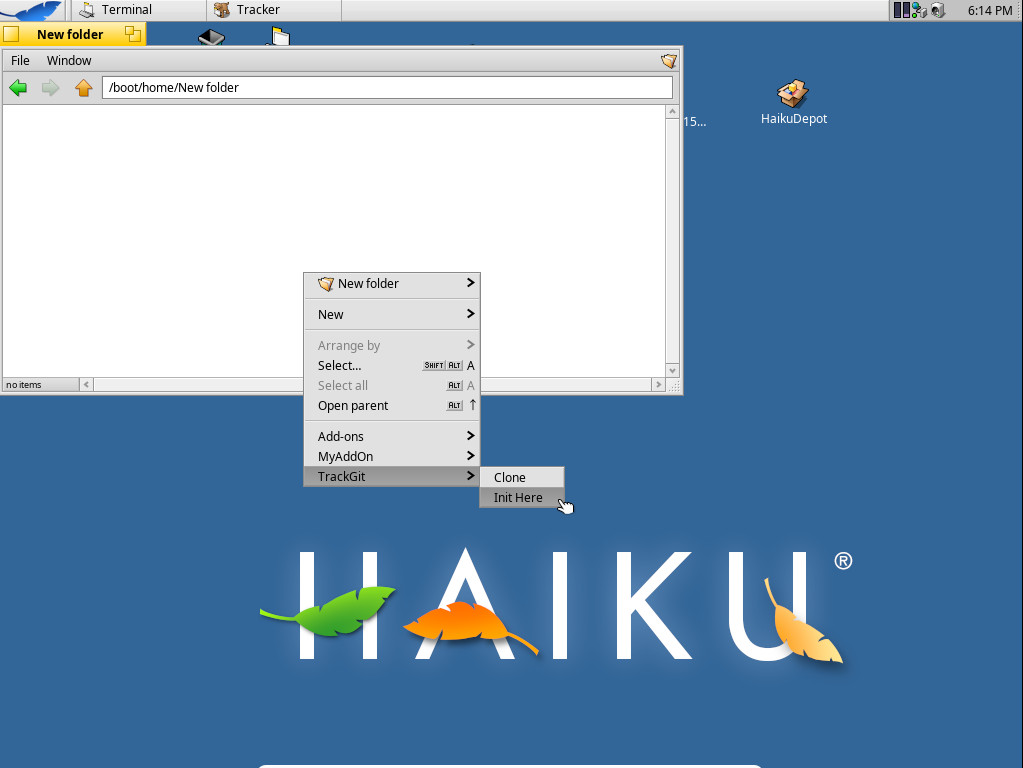
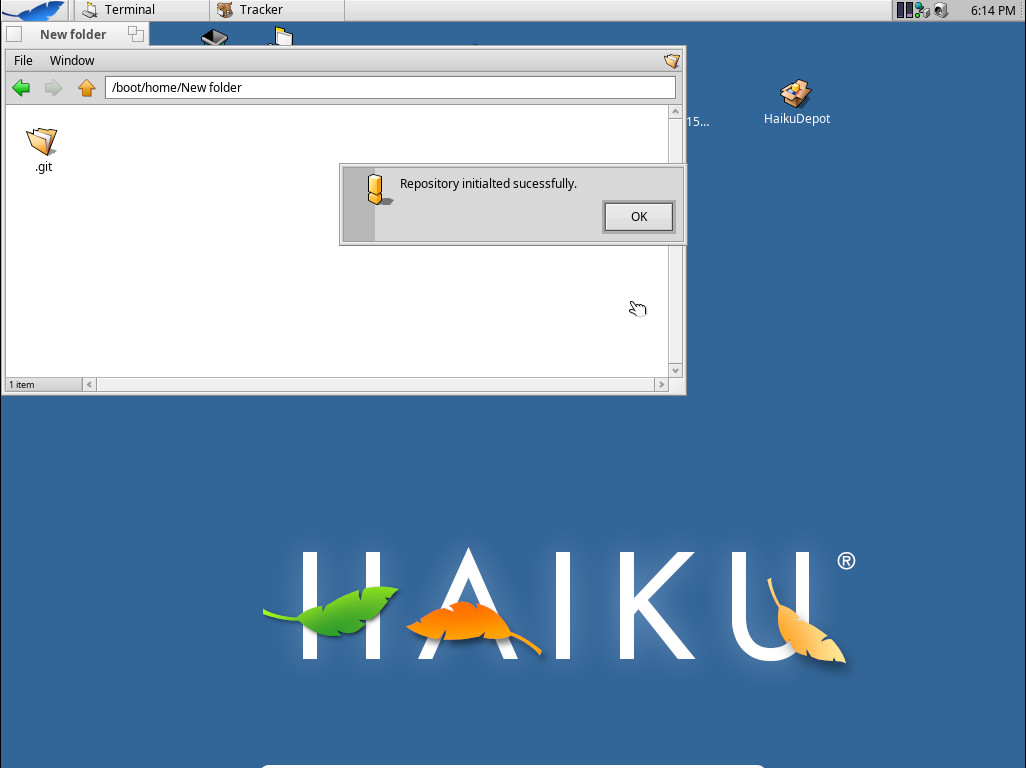
Init Test
I added tests for Init. This is done with the help of CppUnit testing framework.
Up until recently, Haiku builds for ARM have targetted individual ARM boards. The compile process for ARM images required two things: an architecture, and a target board (such as the Raspberry Pi 2). This board setting adjusted a large number of defines throughout Haiku at compile time to set the operating system up for the target ARM device. The board selection also handled placing all the propriety bits (a lot of which have sketchy licensing) into the Haiku image during compile. Haiku would then have to distribute these files. (sketchy licensing and all)
This is the second progress report for TrackGit project. I did the following in last week.
TrackGit repo
I created the repository for TrackGit. You can follow it at https://github.com/Hrily/TrackGit.
I also created Wiki to maintain the Weekly Progress report.
Icon for TrackGit
I added icon to project using a rdef file.
LibGit2
TrackGit uses libgit2 as interface for git. I tried compiling TrackGit using libgit2 but getting some header errors. I’m getting help from mentors regarding this.
Hey everyone, I have been working on the project for the past two weeks and would love to share my update here as well.
My first task is to create an empty file system module and test the same on fs_shell. As fs_shell provides an interface to build and test the file system in a commandline tool, it will be easier to test the file system module.
I made an XFS image file using the following commands:
Hie
This is my first progress report. Following are the things I did in last couple of weeks:
- Set up the Environment.
- Started on Dynamic Tracker Menu.
- Had a nice chat with my mentor Stippi.
- Learnt how to build Haiku on Haiku. Especially, building and running the Tracker module.
- Faced few difficulties in Dynamic Tracker Menu. Solved them with some help.
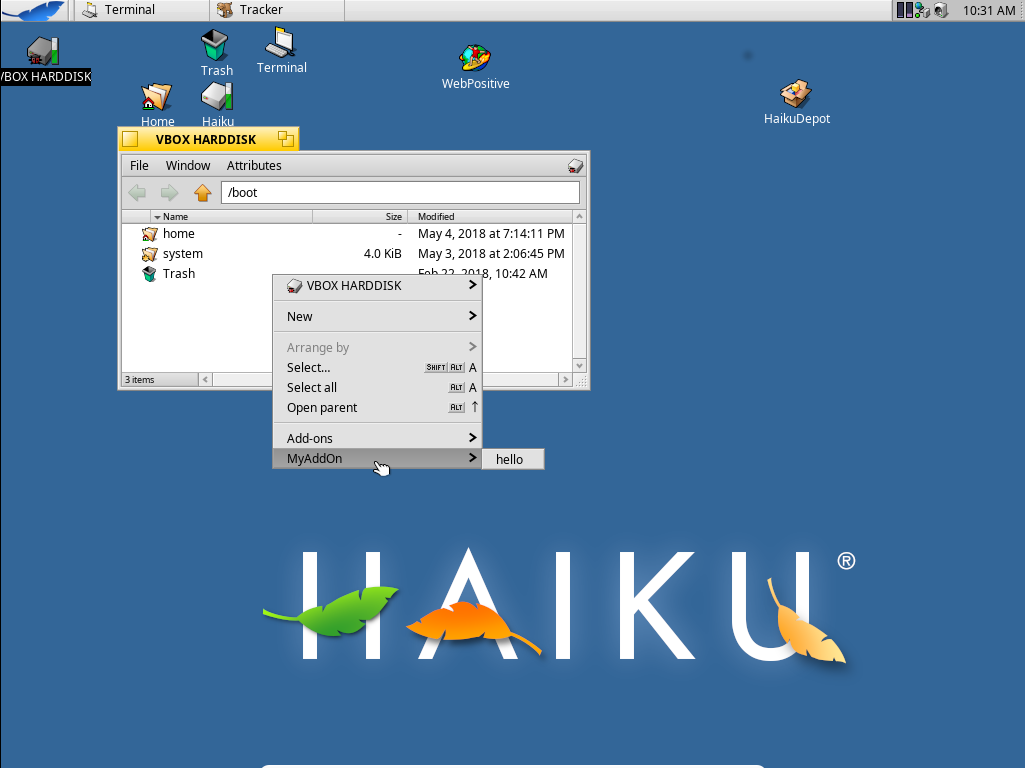
Dynamic Tracker Menu lets addon add items to the popup menu of Tracker based on the files selected. I was able to implement this in Haiku. A small example of this can be seen in above image.
Hey folks! here’s the updates of past two weeks on the project!
I have cloned the latest haiku source and built the image file. With the generated image file I have emulated sdhci-pci device successfully. Following are the instructions to be followed:
Cloning the source code
git clone https://github.com/haiku/haiku.git
git clone https://github.com/haiku/buildtools.git
Compiling Source Code
Create a directory where you are going to save the build image and related files








